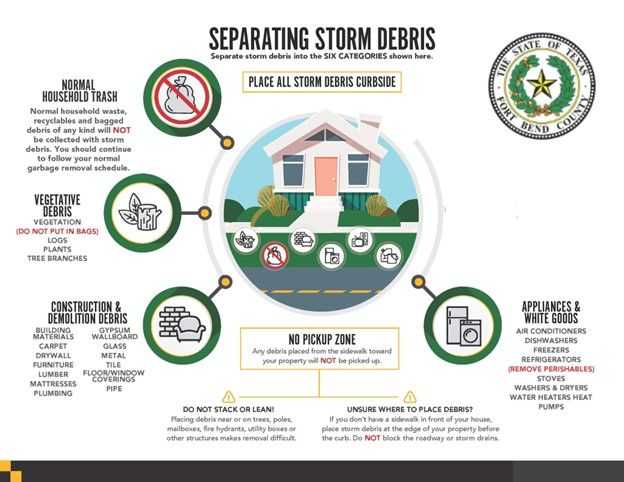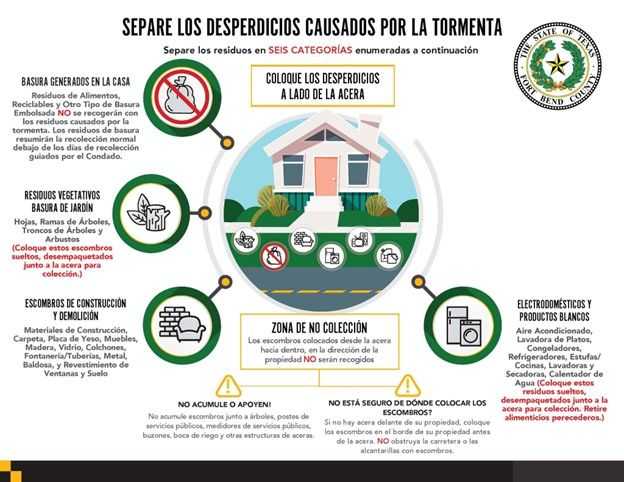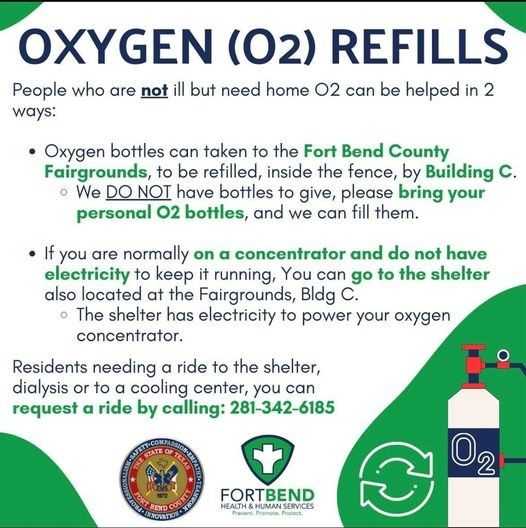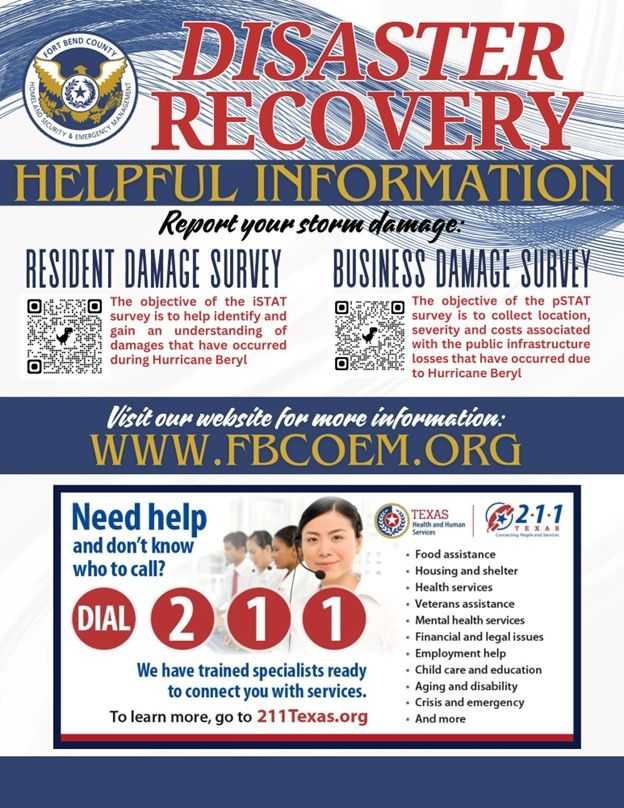Post-Storm Clean-Up & Heat Safety
- Don’t push yourself. Straining the body can lead to heart attacks and other serious issues. Perform clean-ups slowly, taking lots of breaks.
- Be careful with chainsaws. Wear protective gear. Keep a safe distance from bystanders. Avoid contact with fallen power lines to prevent electric shock. If you aren't trained to use them, leave power tools to the experts.
- Stay safe in the heat. Stay hydrated wear light loose fitting clothing. Take breaks in shaded areas. Clean up during cooler hours if possible.
Common symptoms of heat-related sickness include headaches, dizziness, nausea, and loss of consciousness. Seek medical care or call 911 immediately if you suspect someone is suffering from a heat-related illness.
Carbon Monoxide & Generator Safety
According to the Centers for Disease Control (CDC) carbon monoxide (CO) is invisible, odorless, and tasteless. CO is found in fumes produced any time you burn fuel in cars or trucks, small engines, stoves, lanterns, grills, fireplaces, gas ranges, or furnaces. CO can build up indoors and poison people and animals who breathe it.
The most common symptoms of CO poisoning are headache, dizziness, weakness, upset stomach, vomiting, chest pain, and confusion. CO symptoms are often described as “flu-like.”
Breathing CO can KILL. People who are sleeping or drunk can die from CO poisoning before they have symptoms.
The CDC offers these precautions to help prevent CO poisoning:
- When using a generator, use a battery-powered or battery backup CO detector in your home.
- Make sure your gas appliances are vented properly.
- Never use a portable gas camp stove indoors.
- Never run your car or truck inside a garage that is attached to a house, even with the garage door open.
Anyone who suspects symptoms of CO poisoning should open doors and windows, turn off gas appliances and go outside. In cases of severe CO poisoning, call 9-1-1 for emergency services.
Generator Safety Proper Usage:
- Use portable generators outdoors in well-ventilated areas at least 15 to 20 feet away from all doors windows and vent openings to prevent carbon monoxide (CO) poisoning.
- Measure the 15-to-20-foot distance from the generator exhaust system to the building.
- Never use a generator in an attached garage even with the door open.
Apartment Generator Safety:
- Apartments: avoid using portable generators in apartment buildings or on apartment balconies.
- Portable generators should only be used outdoors in well-ventilated areas at least 15 to 20 feet from all doors windows and vent openings to prevent carbon monoxide poisoning.
- Carbon monoxide poisoning may happen if a fuel-burning device like a generator is not functioning or vented correctly inhaling high levels of CO can be deadly.
Safe Oil & Gas Storage
- Proper storage for disposal keep the lid tightly closed and place the containers in an area where they will not be affected by heat, cold, or moisture.
- Keep the product in its original container. If you need to transfer some of the product to another container, make sure the new container is properly labeled with the product information.
- Do not store flammables (gas, oil, paint thinners, etc.) next to pool chemicals or bleaches.
Debris Removal
Due to the effects of Hurricane Beryl, Fort Bend County Road & Bridge is coordinating the collection and removal of disaster debris within Fort Bend County. Fort Bend County Road & Bridge will begin debris collection and removal beginning early next week. In order to recycle as many materials as possible, residents are asked to separate disaster debris into the following piles:
- Construction and Demolition Materials
- Electronic Waste
- Household Hazardous Waste
- White Goods
- Vegetative materials (trees, limbs, brush, leaves, etc.)
DO NOT MIX OR PLACE NORMAL HOUSEHOLD TRASH WITH STORM DEBRIS CURBSIDE
Normal Household Trash - normal household waste, recyclables and bagged debris of any kind will not be collected with your storm debris. Please continue to follow the your normal garbage removal schedule.
Please note that this operation is ONLY for disaster debris. Please do not attempt to place garbage or other household refuse with the disaster debris, as it will not be accepted, and will delay your storm debris collections. Regular trash removal services in the community will continue as scheduled.
Please place the debris piles at the curb in the public right-of-way (not in ditches) in front of your home or business as soon as possible. Please do not block any public utility such as fire hydrants, water valves, road signs, etc. If properly separated, it will be picked up by crews.
THANK YOU.



